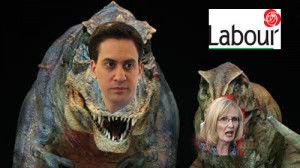The seeds of last Thursday’s decimation at the Polls of Scottish Labour were germinating long before the 2014 Referendum. Worried by the rise of the Nationalists in the Seventies, the late John Smith, one of Labour’s sharpest thinkers, saw critically limited devolution as the solution. His prodigy, Gordon Brown and university friend, Donald Dewar, ensured that his thinking was part of Labour’s successful manifesto in 1997 when Blair swept into Downing Street. The new Prime Minister did not share their enthusiasm but he owed it to Brown and the Scottish Parliament was legislated for in 1998, following the overwhelming support of the Scottish people in the previous year’s referendum.
From the start, it was made clear that the devolved parliament would tow the Westminster line on policy. The inaugural First Minister, Donald Dewar, accommodated that philosophy without demur. Almost immediately, a schism grew between the Scottish Labour MPs at Westminster and, in their view, lesser counterparts at Holyrood. The machine is intensely hierarchical in structure and so uninspiring, journeymen councillors such as Glasgow’s dour Ian Davidson, who had made it to London, unremittingly pointed out their place in the pecking order, a political bourgeoisie. For the young Scottish electorate, this apparent enmity, coupled with their intense hatred of Nationalism, presented a disturbing view of a governing party. Proportional representation ensured that there was a sizeable group of Nationalist MSPs in Holyrood and they were quick to point out devolution’s limitations to the Scottish people and exploit the strife in the Labour monolith. We learned in the Press that First Minister, Henry McLeish, had been publicly reprimanded by Gordon Brown for referring to the Scottish ‘Government’, rather than the lesser term, ‘Executive’. His successor, Jack Mc Connell, received similarly humiliating treatment when the administration published some financial background for a planned bill; it had not first been cleared with the Treasury. As President of the EIS (Educational Institute of Scotland – the majority teachers’ union), during pay and conditions negotiations, following the publication of the McCrone Report, I met with Martin O’Neill, MP, a friend of Gordon Brown and fellow Fifer. We both recognised that this was an unofficial conduit between the trade union side and the eventual paymaster, the Chancellor of the Exchequer. London held the purse strings and the deal had to be acceptable to Brown.
Blair’s intervention in Iraq and his old pals’ act with Bush appalled Scottish voters of all political persuasions. Thousands shredded their Labour membership cards. The SNP emerged as the largest party in the 2007 elections and successfully governed without an overall majority for the next four years. A blinkered Labour Party felt that it was a mere aberration and sulked pathetically throughout the whole term; their behaviour further alienated swathes of the electorate who should have been their natural supporters. The SNP was widely viewed as a very competent administration and it was no surprise when Salmond was returned with an overall majority and a mandate for an Independence Referendum in 2011. Some Labour ‘beasts’ departed the scene for Westminster at the first opportunity. Yet another Labour leader was appointed, the fifth in seven years. Johann is a friend, an EIS colleague, whose finest moment was, undoubtedly, her resignation letter, accusing London of treating Scottish Labour as a branch office. She was unfortunate too that the Government was lead by Alex Salmond, one of the most accomplished politicians in these islands and who has now been succeeded by an even more formidable one in Nicola Sturgeon.
There are still a few brain dead Labour people, including Jim Murphy, who believe that the Referendum and the YES campaign was the sole cause of last week’s disaster. It certainly contributed. One and a half million people supported Independence but, in the aftermath, their desires were largely ignored by Labour who tried to dilute further the already inadequate Smith proposals on powers which Cameron is pledged to deliver. Murphy is just five months in post but in the view of many Scots, including Labour supporters, his baggage is too big a burden to attract votes. Under Blair, he redefined the nature of sycophancy; was a regular media apologist for the legitimacy of Iraq and a devotee of retaining a nuclear deterrent. The extent and nature of defeat do not seem to have limited his ambition which is dismissed as extraordinary fantasy when he havers about becoming First Minister in Holyrood. It is also clear to the Scottish people that the party is seriously divided over his retention of the post.
It will be a long , daunting and probably impossible road back.

What would have happened if Blair refused the wishes of his predecessor? Would this have slowed down the journey to independence?
Labour are making the mistake that the Scotland needs the Labour Party. The diverse political scene here is Scotland makes Labour a ghost of a politics past. They just do not fit in, and do not represent left wing politics. It will be interesting to see how it plays out.